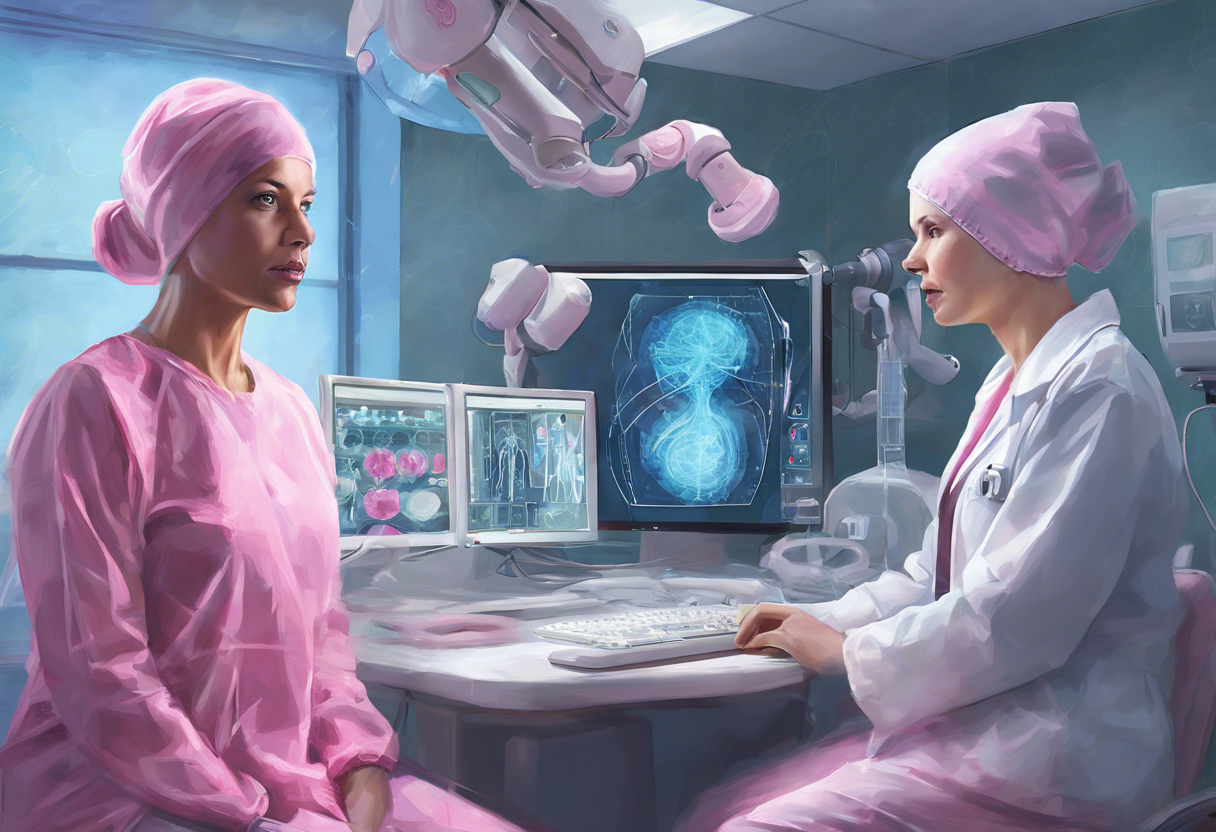
In a groundbreaking development, researchers at Chicago’s Northwestern Medicine have harnessed the power of artificial intelligence (AI) to predict breast cancer outcomes more accurately than expert pathologists. The implications of this breakthrough extend beyond diagnosis, potentially leading to shorter and less severe chemotherapy treatments for patients.
The AI tool, developed by the Northwestern team, demonstrates superior predictive capabilities compared to traditional pathology methods. It identifies breast cancer patients currently classified as high or intermediate risk who could potentially become long-term survivors. This newfound precision in forecasting the disease's course opens the door to personalized treatment plans, sparing patients from unnecessary and often grueling chemotherapy.
In the current medical landscape, pathologists primarily evaluate cancerous cells to determine treatment courses. However, this study, published in the journal Nature Medicine, marks the first instance of employing AI to comprehensively assess both cancerous and non-cancerous elements in invasive breast cancer.
Lee Cooper, the corresponding study author and associate professor of pathology at Northwestern University Feinberg School of Medicine, emphasizes the significance of non-cancer components in predicting patient outcomes. While this knowledge existed in biological studies, translating it effectively into clinical use remained a challenge until the introduction of AI.
Breast cancer, the most commonly diagnosed cancer in Europe, affects a substantial number of women annually. With the precision offered by AI risk estimates, fewer patients may need to undergo chemotherapy, a significant development considering the treatment's adverse side effects, including nausea.
Traditionally, pathologists examine cancerous tissue to determine its abnormal characteristics and prescribe treatment accordingly. However, recent studies have highlighted the role of non-cancerous cells in influencing cancer cell growth. Cooper's team developed an AI model that evaluates breast cancer tissue from digital images, considering both cancerous and non-cancerous cells, as well as their interactions.
The AI model, trained with extensive datasets comprising hundreds of thousands of human-generated annotations, assesses 26 properties of a patient's breast tissue to generate a prognostic score. It also provides individual scores for cancer, immune, and stromal cells, offering a clear decision-making process for pathologists.
This groundbreaking development holds the potential to revolutionize breast cancer treatment, ushering in an era of personalized medicine guided by AI precision. As researchers continue to push the boundaries of medical AI applications, the future promises more accurate diagnoses and tailored treatments, ultimately enhancing patient outcomes and quality of life.